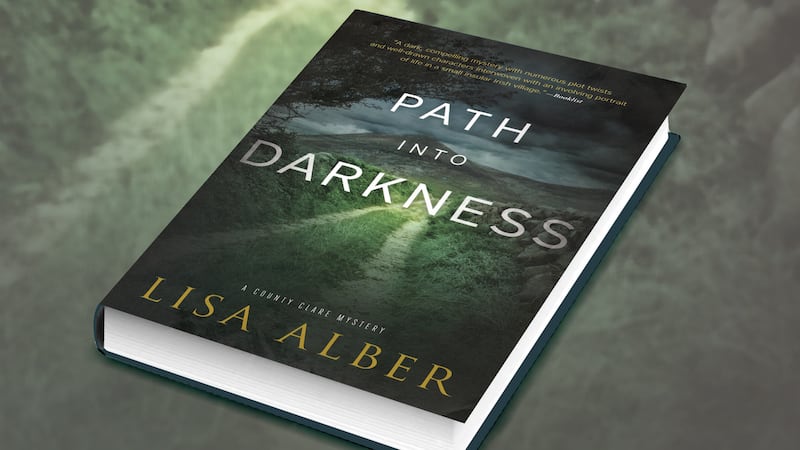Sure, there's a murder. There's always a murder in books like this, with a moody moss-green cover and "County Clare Mystery" blocked out in tasteful type across the front. In the ancient Irish pit-stop of Lisfenora, famous for its matchmaking festival, old pub-drunk Elder Joe has had his belly fitted with six seeping holes, his blood "cheery" in its crimson and the material of his shirt sagging "over his flaccid chest and stomach." It's a gothic grotesque, the horror less in the act than in the ruined human body itself.
In Portland author Lisa Alber's Path Into Darkness (Midnight Ink, 384 pages, $15.99)—the third in the County Clare series—the murder is just the MacGuffin, a hedge mower clearing the underbrush to look at the gross stuff underneath.
Alber's book is the sort of dark mystery currently popular on the BBC, a pensive character study of isolated small towners who always have too much to hide. As Albers herself writes in the voice of Detective Danny Ahern, "Crime tended to occur because of or within people's hidden worlds. Half the battle of investigating crimes was cracking the mirrors that reflected back people's polite facades."
This is also much of the work of the book. Ahern's wife lies in a coma as he considers new romance. Itinerant Californian Merrit Chase has found herself rooted in Lisfenora with her once-estranged father, pressured to take up his mantle of town matchmmaker. Elder Joe had been keeping even elder-er boarders who've half lost their minds—and possibly half their bank accounts to Elder Joe. And what's up with Zoe? Is she a witch or what? Seems like she's way too into her dad, and he's… bothered, somehow.
But while at times the book is home to insight and acute descriptions of physical detail—garden implements, the quality of light or the musky chemical smell of paint—the sea of characters and narrators clogs the book with explanation. Alber seems all too aware of her need to delineate the book's broad tangle of plot with plainly expository dialogue, whether delivering backstory ("Now I've lived here for eighteen months. Eighteen months. I can't believe it.") or tutorials in Irish slang ("Narky… For 'grouchy.' As in he's a right narky old bastard.")
The plot is driven mostly by a nest of surprising revelations and hidden, darker identities—with even the most guileless, if "cracked," of characters prone to sudden and unlikely violence. Every character's motivations seem utterly different after one more turn of the screw. And, it would seem, there is always one more turn of the screw.
Lisa Albers reads alongside local mystery writers Susan Spann, and Kerry Schafer at Annie Bloom's Books, 7834 SW Capitol Hwy., 7834 SW Capitol Hwy., 503-246-0053, annieblooms.com. Thursday, August 24. 7 pm. Free.
